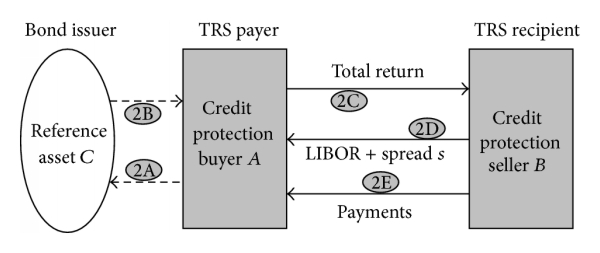Accrual vs Deferral
3 septembre 2021Contents:


When you offer merchandise for sale at a price lower than market in the normal course of business, you can value the inventory at the lower price, minus the direct cost of disposition. Determine these prices from the actual sales for a reasonable period before and after the date of your inventory. Prices that vary materially from the actual prices will not be accepted as reflecting the market. Use the specific identification method when you can identify and match the actual cost to the items in inventory. You can use any of the following methods to identify the cost of items in inventory.
SBA again extends deferment period for EIDL payments – Journal of Accountancy
SBA again extends deferment period for EIDL payments.
Posted: Wed, 16 Mar 2022 07:00:00 GMT [source]
On the other hand, revenue deferrals account for a product or service contract that has been paid in advance. Deferral, For example, Company XYZ receives $10,000 for a service it will provide over 10 months from January to December. In that scenario, the accountant should defer $9,000 from the books of account to a liability account known as “Unearned Revenue” and should only record $1,000 as revenue for that period. The remaining amount should be adjusted on a month on month basis and should be deducted from the Unearned Revenue monthly as the services will be rendered by the firm to their customers. The other difference between the two is whether the income or expense is recognized as an asset or a liability.
Accrued interest refers to the interest that has been earned on an investment or a loan, but has not yet been paid. For example, if a company has a savings account that earns interest, the interest that has been earned but not yet paid would be recorded as an accrual on the company’s financial statements. Deferred revenue is an advance payment for products or services that are to be delivered or performed in the future.
Other forms of indirect stock ownership, such as stock owned by family members, are generally not considered when determining if the ownership test is met. You are a calendar year taxpayer and pay $10,000 on July 1, 2021, for a business insurance policy that is effective for only 1 year beginning on July 1, 2021. You cannot hold checks or postpone taking possession of similar property from one tax year to another to postpone paying tax on the income. You must report the income in the year the property is received or made available to you without restriction.
Definitions of Accrual and Deferral
Pre-https://1investing.in/ subscriptions with services rendered over time will defer revenue over the life of the contract and use accrual accounting to demonstrate how the company is doing over the longer term. Accrual is an adjustment made to accounts to make sure revenue and expenses are properly matched. Regardless of whether cash has been paid or not, expenses incurred to generate revenue must be recorded. When you note accrued revenue, you’re recognizing the amount of income that’s due to be paid but has not yet been paid to you.
The first type is the expense accrual, which refers to reporting a transaction that occurred as an expense and the liability that it occurred against. It is reported before the period of time when the expense has to be paid or when the invoice has to be processed. In the next period of reporting, the balance sheet of ABC Co. will not report the accrued income in the balance sheet as it has been eliminated.
Accounting Recognition
Its accountant records a deferral to push $11,000 of expense recognition into future months, so that recognition of the expense is matched to usage of the facility. Deferred taxes are asset accounts which will provide the economic benefit for the company in the future. Essentially, they are taxes that the organization paid ahead of time, but has not received the “bill” for yet. To summarize, deferrals move the recognition of a transaction to a future period, while accruals record future transactions in the current period. The examples below set out typical bookkeeping journal entries in relation to accruals and deferrals of revenue and expenditure.
Deferment vs. Forbearance for Student Loans – NerdWallet
Deferment vs. Forbearance for Student Loans.
Posted: Mon, 19 Jul 2021 07:00:00 GMT [source]
The 2019 financial statements need to reflect the bonus expense earned by employees in 2019 as well as the bonus liability the company plans to pay out. Therefore, prior to issuing the 2019 financial statements, an adjusting journal entry records this accrual with a debit to an expense account and a credit to a liability account. Once the payment has been made in the new year, the liability account will be decreased through a debit, and the cash account will be reduced through a credit. Using the accrual method, an accountant makes adjustments for revenue that has been earned but is not yet recorded in the general ledger and expenses that have been incurred but are also not yet recorded. The accruals are made via adjusting journal entries at the end of each accounting period, so the reported financial statements can be inclusive of these amounts.
Solvency vs. Liquidity: Know the Differences
An accrual is the recognition of the revenue or expense before cash is received or paid. Deferral is just the opposite of accrual and refers to the recognition of the event after cash has been received or paid. There are other differences also that will be discussed in this article. Accrued revenues refer to the recognition of revenues that have been earned, but not yet recorded in the company’s financial statements. The utility company generated electricity that customers received in December.
The reversal of the AVAE will offset the present value formula credited for a net effect of $0 in the period it was originally posted. Income for one fiscal year must be billed or received (i.e., posted) in the next fiscal year. CREDIT the same Full Accounting Unit used when the income was received. In July of one fiscal year, you received registration fees for a conference held in June of the prior fiscal year. Accruals/Deferrals should not be processed for interdepartmental billings (any goods/service charged through an IB document or feed) or intercampus transactions. • Similarly, you pay out cash to cover for wages of employees but recognize it later in your books.
How to record deferred expenses
The due date for filing Form 8752 and making the payment is the later of the following dates. Any tax year a section 444 election is in effect, including the first year, is called an applicable election year. Form 8752 must be filed and the required payment made by May 15th of the calendar year following the calendar year in which the applicable election year begins. Make a section 444 election by filing Form 8716 with the Internal Revenue Service Center where the entity will file its tax return.
Accruals help match revenues and expenses to the appropriate period, while deferrals postpone the recognition of certain transactions to reflect their economic impact accurately. Another example of this could be that when a company purchases supplies, it defers the cost of those supplies since not all the supplies bought were used or consumed during the accounting period it was reported under. Therefore, an adjusting entry would be necessary to defer the cost of the supplies that the company did not utilize.
The cash given to the unit is a liability because it represents an obligation the unit has to provide the good or service . Deferred expenses are the prepaid expenses yet to incur in a future period of accounting. The second important principle regarding deferral accounts is the revenue recognition principle. According to the FASB, IFRS 15, the revenue recognition principle, revenue should be recognized when earned or when the performance obligation is completed.
- The second type of deferral is called the Revenue Deferral, which refers to money that was received before it was earned.
- If an estimate is used, include the calculation method in the explanation.
- A cash basis will provide a snapshot of current cash status, but does not provide a way to show future expenses and liabilities as well as an accrual method.
- As briefly mentioned earlier, accruals are financial transactions that are recognized when they occur.
Contrarily, deferred or unearned income is received in advance before providing goods or services.Let us discuss key differences between accrued revenue and deferred revenue. In the above example of an insurance policy, each monthly payment would be entered as an accrued expense and recorded as cash “credited” to the insurance provider on the balance sheet. After the payment has been made, the entry would be modified to reflect a complete, “debited” transaction to the provider. When a payment is made after services have been rendered or goods have been received and are included in the current fiscal period on your balance sheet, it is referred to as an accrual. On the other hand, a payment that is received before a service has been performed or goods delivered and made to reflect within the following fiscal period is referred to as a deferral. Any prepaid expenses are made in advance of receiving the goods or services.

These adjusting entries occur before the financial statements of the reporting period are released. The reason to pass these adjusting entries is only that of the timing differences which is simply when a company incurs an expense or earn revenue and when they receive cash or make payment for it. Deferred expenses or prepaid expenses are expenses that the business has paid for but the business has not yet been compensated for. For example, sometimes businesses may be required to make advance payments for certain expenses, such as rent or insurance expenses.
Expenses and income are only recorded as bills are paid or cash comes in. The purpose of accruals is to ensure that a company’s financial statements accurately reflect its true financial position. This is important because financial statements are used by a wide range of stakeholders, including investors, creditors, and regulators, to evaluate the financial health and performance of a company. Without accruals, a company’s financial statements would only reflect the cash inflows and outflows, rather than the true state of its revenues, expenses, assets, and liabilities. By recognizing revenues and expenses when they are earned or incurred, rather than only when payment is received or made, accruals provide a more accurate picture of a company’s financial position. The use of accrual accounts greatly improves the quality of information on financial statements.

The offset to accrued revenue is an accrued asset account, which also appears on the balance sheet. Therefore, an adjusting journal entry for an accrual will impact both the balance sheet and the income statement. The basic difference between accrued and deferral basis of accounting involves when revenue or expenses are recognized. An accrual brings forward an accounting transaction and recognizes it in the current period even if the expense or revenue has not yet been paid or received.
Deferred revenue is most common among companies selling subscription-based products or services that require prepayments. When the services have been completed, you would debit expenses by $10,000 and credit prepaid expenses by $10,000. For example, you’re liable to pay for the electricity you used in December, but you won’t receive the bill until January. You would recognize the expense in December and then when payment is made in January, you would credit the account as an accrued expense payable.
